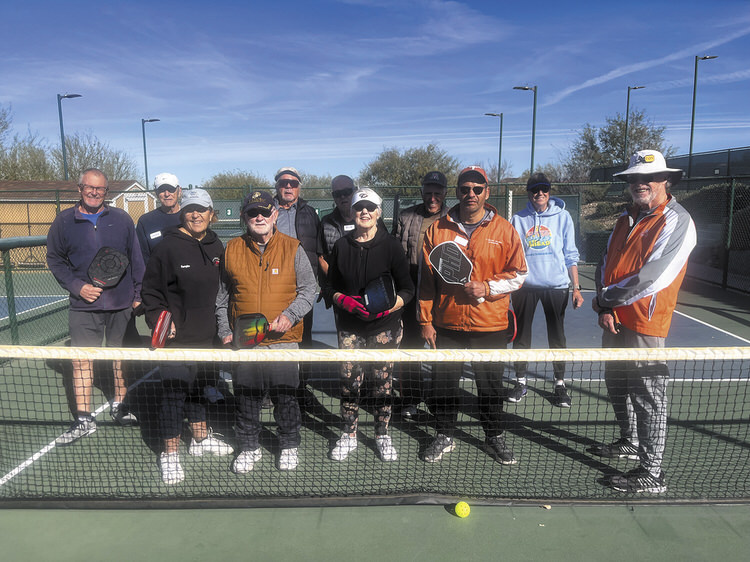 Don Amour
Don Amour
Since this past fall, every Tuesday and Friday at 9:30 a.m., a group of Parkinson’s patients, their caregivers, and volunteers from the Quail Creek Pickleball Club get together at courts 1 and 2 at Quail Creek. Over the hour-and-a-half session, there is some social time to get acquainted and share information on our experiences, discuss local support services, do some stretching, take a lesson on a particular aspect of the game, and spend the rest of the session playing.
Under a grant from the Parkinson’s Foundation to the New Mexico Arizona Pickleball Association, local Pickleball Ambassador Lenny Friedman received funds and supplies for a research program to determine the effects of playing pickleball on people with the movement disorder Parkinson’s disease.
As a result, our very diverse group of people is having a wonderful experience together on the courts. Ages range from the 60s to the 80s. Our onset of symptoms and diagnosis range from 2 to 20 years ago. Some of the careers in the group were teachers, engineers, Marine Corps helicopter pilot, sales and marketing, and corporate finance.
Socialization and movement are foundations for maintaining both physical and mental health. So, how has that worked out? Here are a few comments from participants:
From a former 3.5 rated player: “It has been great for me to have this ‘organized’ time to play with people who have similar physical restrictions. More than anything, it’s been a spirit booster for me to have a time to actually play pickleball. I can do fairly well when we play dinking games, because I don’t have to move my feet much.”
From a longtime pickleball player: “Remarkably, my motor symptoms often disappear for at least two hours after playing. For someone with Parkinson’s disease, that is truly a slice of heaven.”
From a caregiver: “He has an instructor who is reminding him of the basics that he had stopped using, so his game has improved, as well as his balance and his speed of motion.”
From a patient: “The program has given me back the desire and enjoyment of playing pickleball. I have found that it has increased my social time, which has allowed me to practice my speaking voice with those who truly understand the effort that it takes both mentally and physically.”
From a patient: “The effort we are making together as we take lessons and play instills a ‘we can do this’ attitude. The game, by its nature, is very social, which helps break down the barriers and hurdles we experience individually and alone. The caregivers and volunteers who participate in the program reinforce the feeling that we are people who matter and are worthy of the time and attention.”
We are all hoping the program continues beyond this winter season. For information about the program, contact Lenny Friedman at 541-890-1620 or mathcoach801@gmail.com.
